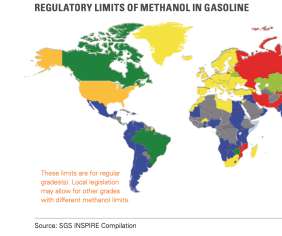Methanol Institute releases two reports on methanol as safe, efficient and clean fuel
Green Car Congress
MARCH 17, 2020
The Methanol Institute (MI) released two new reports on the use of methanol as a safe, efficient and clean alternative fuel for cars, trucks and buses. Low levels of methanol can be blended with gasoline and used in the existing fleet of vehicles.











Let's personalize your content